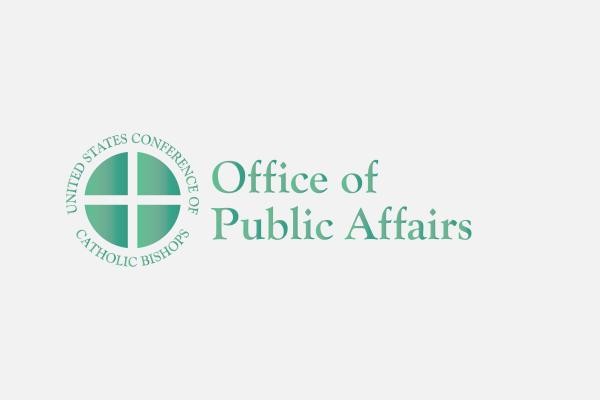USCCB Delegation To Middle East Warns Of Worsening Syrian Refugee Crisis
WASHINGTON—In a press conference November 1, members of a U.S.Conference of Catholic Bishops' (USCCB) delegation to the Middle East warned ofa worsening Syrian refugee crisis and urged more international support forSyrian refugees in the region.
WASHINGTON—In a press conference November 1, members of a U.S.Conference of Catholic Bishops' (USCCB) delegation to the Middle East warned ofa worsening Syrian refugee crisis and urged more international support forSyrian refugees in the region.
"Withoutmore international support, the humanitarian situation, both inside and outsideSyria, could reach a breaking point in the not so distant future," said BishopAnthony Taylor of Little Rock, Arkansas, a member of the USCCB Committee onMigration and head of the delegation. "The international community, led by theUnited States, must do more to provide assistance to the refugees in order toavert a humanitarian crisis," he added.
Thedelegation traveled to the region October 7-20, visiting Egypt, Lebanon, Jordanand Turkey.Bishop Taylor was joined onthe mission by Holy Cross Father Daniel Groody, associate professor of theologyat the University of Notre Dame and consultant to the USCCB Committee onMigration; Anastasia Brown, director of refugee resettlement at USCCB; BethEnglander, director of special programs/populations; Natalina Malwal, transportationspecialist for processing operations; and Kevin Appleby, director of migration policyand public affairs.
Brownemphasized that many refugees who have not registered with the United Nationsand are hiding in local communities are particularly at risk. "Although muchattention is rightly being paid to the refugees in camp settings, those livingin local communities are falling through the cracks," she said. "As they arespending down their resources, their needs are increasing and the services todate are insufficient."
Thedelegation also expressed concern about specific groups fleeing the violence,including Syrian Christians and other religious minorities and Iraqi refugeesresiding in Syria.
"There is great fear among the Syrian Christians, whoare caught in the middle of the conflict and are concerned that their communitywill become targets of the violence. In fact, we heard many stories ofChristians being threatened, a precursor to the sectarian violence whichemerged during the Iraq war," Bishop Taylor said.
BethEnglander, who oversees services to trafficking victims and unaccompaniedchildren for USCCB, cited the vulnerability of refugee women with children, themajority of the Syrian refugee population. "Many of the men are remaining inSyria to protect their property, to work, or to fight," she said. "Women withchildren are left to make it to safety on their own and become vulnerable toexploitation and abuse." She added that youth between 15 and 17 areparticularly vulnerable, as they are expected to return to Syria and fight inthe conflict.
Thedelegation also visited Egypt and detailed stories of African refugeesexperiencing trafficking and torture in the Sinai desert. Kevin Appleby,director of migration policy and public affairs said that the U.S. and Egyptiangovernments must work together to rescue these victims and halt the practice."If our nation is going to claim leadership in ending the scourge oftrafficking, then we should show leadership and end the torture and traffickingoccurring in the Sinai desert."
Thedelegation issued a set of findings and recommendations which can be found at: https://www.usccb.org/about/migration-policy/fact-finding-mission-reports/findings-recommendations-syrian-refugees.cfm
A more detailed report will be released in thenear future.
--
Keywords:U.S. Conference of Catholic Bishops, USCCB, Bishop Anthony Taylor, Syria,humanitarian, refugee, international religious freedom, Committee on Migration,Middle East, Iraq, Egypt, Lebanon, Jordan
# # # # #
MEDIA CONTACT ONLY:NormaMontenegro-FlynnO:202-541-3202Email

